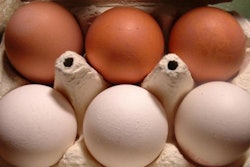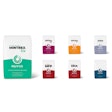
Environmental organizations say the permit will allow Valley Proteins to contribute to unhealthy water quality in the Chesapeake Bay region.
Environmental groups have filed a legal challenge after the Maryland Department of Environment (MDE) issued a wastewater discharge permit for poultry renderer Valley Proteins Inc., according to reports.
The MDE issued the National Pollutant Discharge Elimination System (NPDES) permit to the Valley Proteins location in Linkwood on December 27, 2022, to be effective February 1, 2023, through January 31, 2028. The permit will allow the facility to release nearly four times the amount of wastewater into the Transquaking River, a tributary of the Chesapeake Bay.
In response to public comments, the MDE added more conditions beyond what had originally been proposed in 2021, but environmental groups say they are not enough. The plant will have to meet “substantially stricter” pollution limits in its discharge after a three-year “compliance period,” during which it is expected to upgrade its treatment system. After that, MDE said the company may increase its discharge.
After the treatment system upgrade, Valley Proteins’ annual discharge limits will be 44% lower for nitrogen and 79% lower for phosphorus, according to MDE.
Five environmental groups filed a lawsuit in Dorchester County Circuit Court seeking a judicial review of the permit. The suit seeks to send the permit back to MDE so the agency can address deficiencies and make revisions. The groups claim the permit allows for the potential for the plant’s discharge to contribute to unhealthy water quality in the Transquaking River, Higgins Mill Pond and Chesapeake Bay.
“MDE relied on insufficient data about the Transquaking River and its watershed when issuing this permit,” said The Chesapeake Bay Foundation’s Eastern Shore Director Alan Girard. “While the agency claims the new permit would reduce pollutants, it doesn’t ensure water quality will be protected. The amount of pollution that MDE permits Valley Proteins to release into Dorchester County waterways will continue the long-term, well-documented harm this facility is causing in the Transquaking River watershed. The agency that issued the permit under the previous governor’s administration must be held accountable for not meeting its obligation to protect water quality as required by federal law.”
MDE’s past issues with Valley Proteins
In September 2022, Valley Proteins reached a settlement with Maryland’s attorney general and Department of the Environment in a lawsuit that alleged illegal discharge of pollutants by the company into a nearby waterway. A consent decree settled the lawsuit filed in February 2022 by Maryland Attorney General Brian E. Frosh on behalf of the MDE that alleged Valley Proteins had repeatedly discharged ammonia, phosphorus and other pollutants into the Transquaking River for well over a year. Valley Proteins’ illegal discharge of pollutants was in violation of its NPDES permit and state water pollution laws, and included failure to implement stormwater pollution plan best management practices, numerous unauthorized discharges of wastewater, sludge and solids, and violations of its air emissions permit.
In December 2021, operations at the Linkwood facility were suspended in response to an inspection report from the MDE that listed numerous needed corrections. According to an MDE press release, the inspection report required the company “to set forth planned actions to ensure that future operations will comply with discharge limits and permit terms. The proposal is subject to MDE review as the department and the facility work toward an agreement, in the form of a consent order, on moving forward.”
Valley Proteins operates 18 major rendering and used cooking oil facilities throughout the southern, southeast and mid-Atlantic regions of the U.S., and employs 1,900 employees and operates a fleet of 550 vehicles. Darling Ingredients acquired Valley Proteins in 2022.















